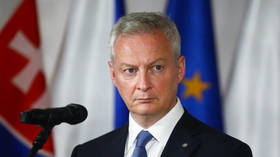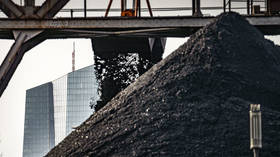French minister ‘slapped in face’ over Russia sanctions – party leader

The new OPEC+ deal to reduce oil production levels is a fresh blow for French Economy and Finance Minister Bruno Le Maire, according to Florian Philippot, leader of the right-wing Les Patriotes (The Patriots) party.
“Bruno Le Maire, who was supposed to make the Russian economy ‘collapse,’ received another slap in the face,” Philippot wrote on Twitter.
The politician was reacting to the deal unveiled by the group of major oil producers, including Russia, Saudi Arabia, Iraq, Kuwait, and the UAE, to cut jointly production by up to 1.15 million barrels a day from May until the end of 2023.
Suhail bin Mohammed Al Mazrouei, the UAE’s energy minister, said that the move announced on Sunday was “a precautionary measure taken to ensure market balance.”
The upcoming change in production rate has led to a spike in prices, with West Texas Intermediate rising by as much as 8%, according to Gulf News. The surge comes as the US and EU continue to grapple with an energy crisis.
Western countries have attempted to curb Russia’s revenues from the oil trade as part of sanctions imposed in response to Moscow’s military operation in Ukraine.
Le Maire said in March 2022 that the goal of the EU’s “total economic and financial war” was to “cause the collapse of the Russian economy.” He later claimed that his remarks were “inappropriate” because they did not match the bloc’s “de-escalation” policy.
In January, Russian Deputy Prime Minister Aleksandr Novak said that despite the sanctions, the country’s revenues from oil and gas exports saw a nearly 30% increase in 2022.













